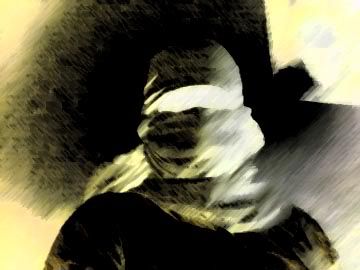Assalaamu Alaikum,
اچھا ھے دل کے ساتہ رھے پاسبان عقل
لیکن کبھے کبھے اسے تنھا بھے چھوڑ دے
"It is good for there to be present with the Dil (the Heart), as a Guard, the Aql (Intellect)
However, sometimes, sometimes, just leave it (the Heart) alone as it may be..."
So I asked, "And when would these times be?" And she replied with another couplet of poetry. "Like when...":
بے خطر کود پڑا آتش نمرود مے عشق
عقل ھے محو تماشائے لب بام ابھے
"Fearless, jump into the fire of Namrood, did Divine Love,
While Aql still stands aside the spectacle, astounded."
First of all, the poetry blew my mind. I tried to stay true to the structure of the sentence, which is why it might sound awkward, but it is basically saying that "Ishq" or Divine Love jumped fearlessly into Namrood's pit of fire, while Intellect stood back on the edge, dumbfounded and amazed.
The first one is pretty straight forward minus the awkward structure, but it says that the heart needs the mind and intellect to govern it so it doesn't run wild and have a person become someone of whims and desires, but there are some occasions, when intellect cannot help any longer, and the heart needs to be left by itself to do what it must.
I don't know where the first one is from, but the second is an excerpt from some of Iqbal's work. It is in reference to the story of Ibrahim (AS), when he was cast into the fire. It was at this moment, that he had to desert his intellect, which for any man would scream with every fiber of its being that this fire will burn, and he had to free the reigns on his Heart, in which this Love for Allah and believe in Him resided, and it was through this love and belief, he was able to say even in the midst of his ascension into the pit of fire:
حسبي الله و نعم الوكيل
SubhanAllah. Back to the topic of poetry. In the brief explanation that my mother provided for me, I was able to pick up at least a little bit of appreciation for Urdu poetry. These are the same poems that I'll hear at a Desi wedding, and hear the uncles and aunties cry sighs of awe and amazement at lines that I do not understand, yet sound very short and simple to my ears.
After having these lines explained to me, I can't claim I am able to gauge how advanced or how eloquent the language was, or the style, due to my embarrassing limits of the language, yet I was still impressed, simply by gauging how well it flowed, and how it sounded to my ears, and how I hadn't heard of half the words before. I can only imagine how these lines impact a person who is well versed in the language. And I can understand their amazement at the meaning and depth. And I can envy it.
More so, I can imagine then, the wonder of the Arabs, who's lives were revolving around the strength of their language and their expertise in poetry, with the Ayat of Qur'an, which perplexed and amazed them, because it was like nothing ever seen or brought forth before, and it shook their hearts, challenged their minds, brought them to tears, to the extent that none were able to bring the likes of even one Ayah like it, and it changed an entire nation. I can imagine. And more so than the envy before, is the desire for this.
This is why we MUST thoroughly learn and immerse ourselves in Arabic. Not just to be able to understand the Qur'an, but to be able to actually experience it. May Allah make this path easy for us all, Ameen.
And so coming back finally to the story of Ibrahim in light of the Qur'an, it's only fitting to share the story as it is told best, by Allah (SWT) himself.
I spliced these into short clips. This first one is from Surah Anbiya:
From Surah Saaffaat:

3 comments:
I wonder if truer words were ever spoken, at least in poetry..
Anyways, I echo your sentiments bro. My parents (particularly my dad) roll out random couplets every now and then that make me wonder why I don't understand my 'mother' tongue as well English. :/
On topic, I'm still catchin up on Nouman's Juz Amma. It certainly helps decode some of the underlying impressions Allah makes in His words, something non-native Arabic speakers can finally get a hint of. I just hope I (and the rest of the ummah) am wise enough to know when to leave the mind behind, and parry the cause of the heart with more emotion and less thought.
(ooh, that rhymed!!! yooo)
lovely post mashaAllah!
i see the urdu folk have the same habit as the arabs- quoting phenomenal bits of poetry on the breakfast table!
Taking classes from Ziyyara’s online tutor for Arabic in Malaysia at an early age can prove to be an investment for the future. Our aim of offering the Online Arabic Class in Malaysia to the students is to build their ability to converse and communicate with others in a more productive way.
Contact Us - +91-9654279131
Post a Comment